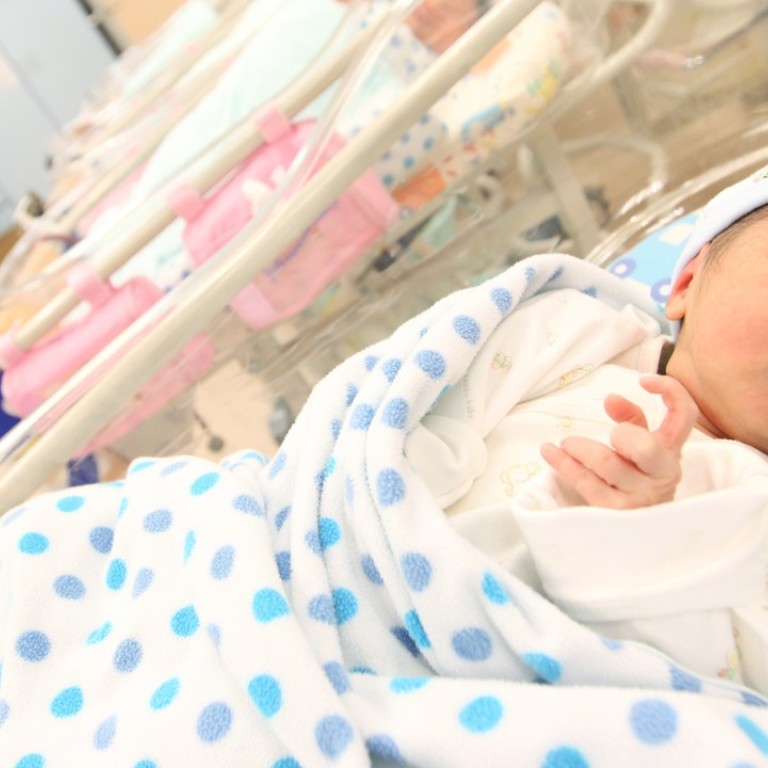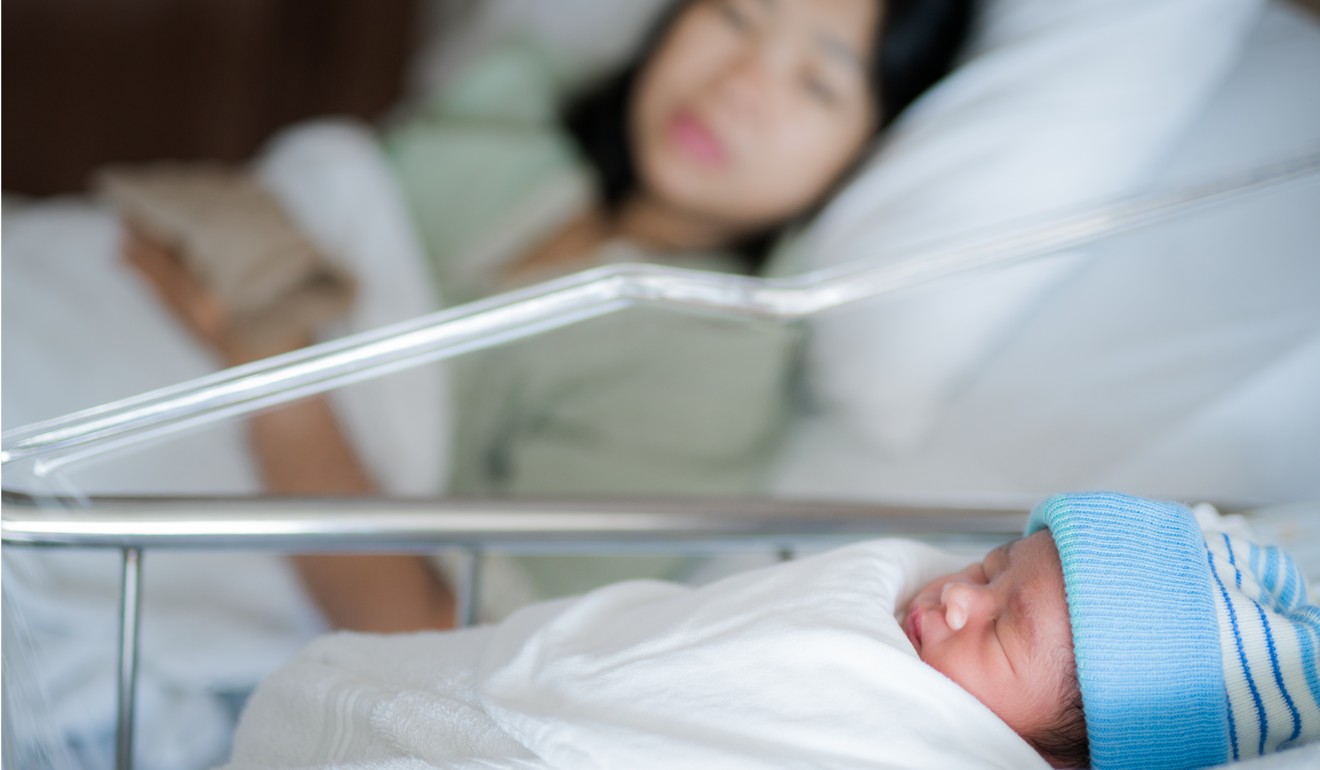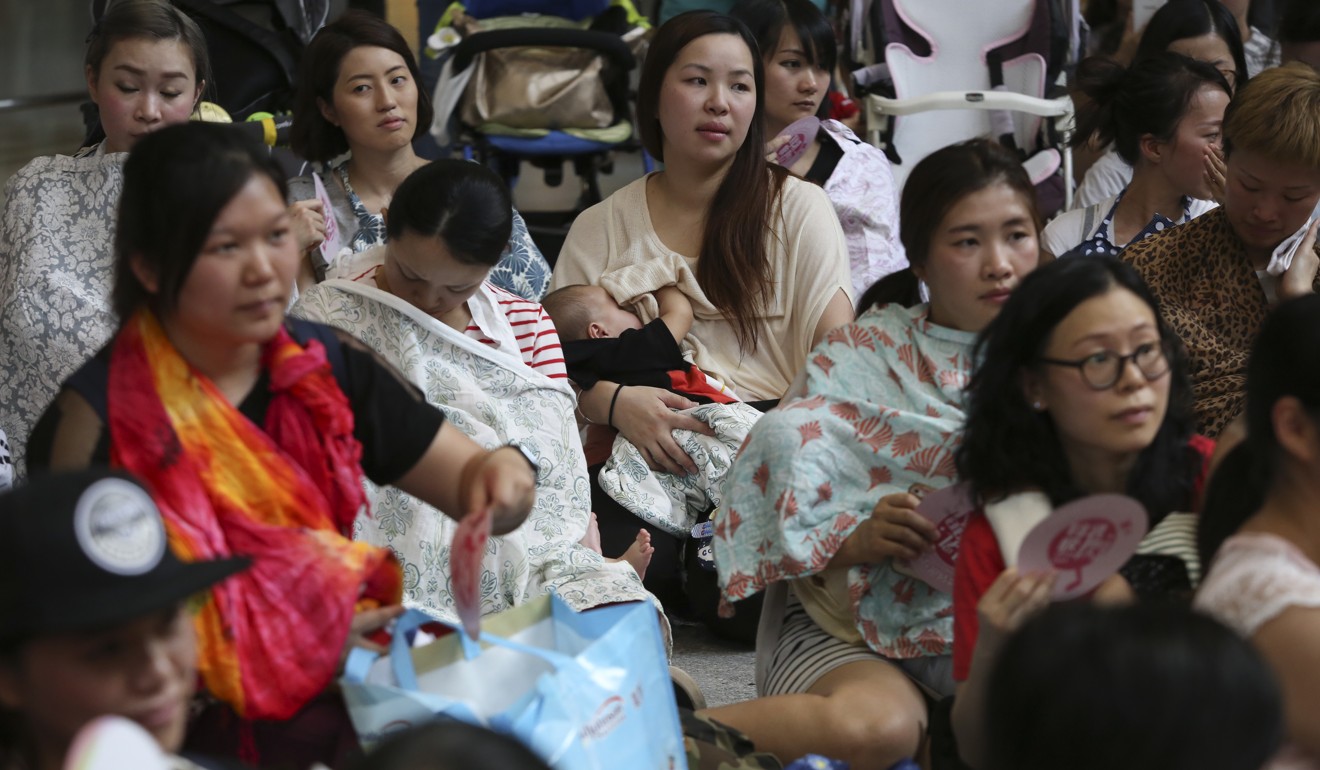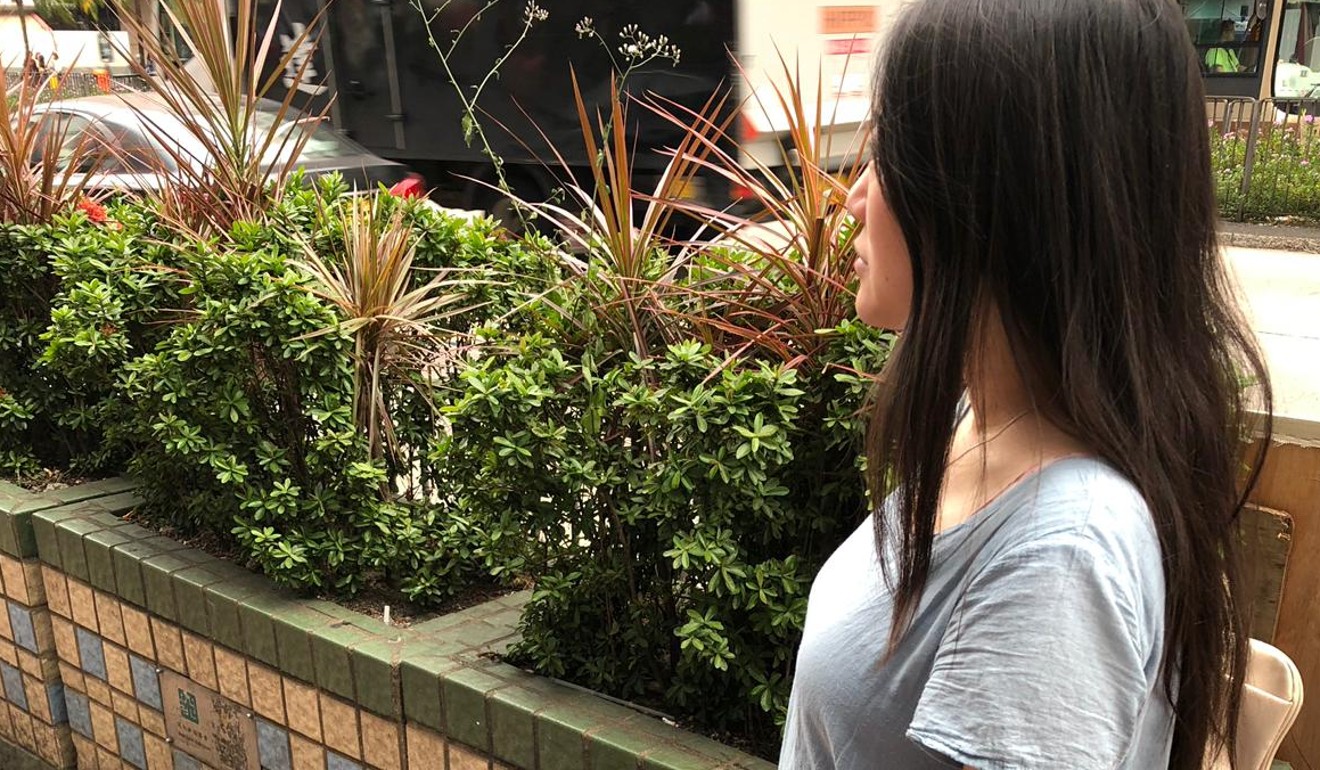
Hong Kong maternity leave to increase to 14 weeks under raft of pro-family measures announced in chief executive’s policy address
City finally falls in line with minimum standard for maternity leave set down by the International Labour Organisation
Hong Kong’s leader won rare applause from the women’s community on Wednesday as she unveiled an array of pro-family measures, which included longer maternity leave and new initiatives to support breastfeeding.
But groups also called on Carrie Lam Cheng Yuet-ngor to come up with a clearer road map on how to boost the provision of childcare services in the city – which they said was crucial to helping mothers stay in employment.
“Although more women receive higher education than men do nowadays, the female labour force participation rate is much lower than that of male,” Lam, the city’s first female chief executive, said as she delivered her second policy blueprint.
The most eye-catching move was to extend the statutory maternity leave from the current 10 weeks to 14 weeks, which will finally put Hong Kong on par with the minimum standards laid down by the International Labour Organisation (ILO).
Maternity leave in Hong Kong: can Chief Executive Carrie Lam bring city in line with Singapore and South Korea without riling the business community?
Working mothers are currently paid 80 per cent of their wages while on maternity leave.
Under the proposal, the government would be fully responsible for the cost incurred by the extra four weeks of maternity leave, although the money – based on the same four-fifths formula – would be capped at HK$36,822 per employee.
That means employees who earn more than HK$50,000 a month would not get the full four-fifths of their wages, though the government said it only accounted for five per cent of employees in Hong Kong.
A government source said it would cost HK$479 million a year to subsidise employers.

While the initiative has been implemented among civil servants with immediate effect, a source said they were expecting the bill would only be tabled in late 2019 and would be passed before July 2020.
In a bid to promote breastfeeding, Lam said the administration would require developers to provide baby care facilities and lactation rooms as part of its future sale conditions of land. She also pledged to increase the provision of childcare services amid a dire shortage.
Hong Kong is severely lacking in terms of childcare options for working parents [and] 30 per cent of women drop out of the workforce due to caring responsibilities
Both the Hong Kong Federation of Women’s Centres and the Hong Kong Confederation of Trade Unions (HKCTU) welcomed the raft of family-friendly measures, in particular the extension of maternity leave, which they have fought for years.
But they all said the leader’s pledge to increase childcare services remained vague in the policy address.
“Many parents have no choice but to either give up their work, ask their elder parents for help or hire a foreign domestic helper once their babies arrive as it is almost impossible for them to secure a place for childcare services in Hong Kong,” said Lam Ying-hing, coordinator of the HKCTU women’s affairs committee.
The number of places in day crèches for children younger than two years old has dropped from 1,530 in 1995 to just 747.
“The government really needs to study carefully and locate the discrepancy between the supply and demand of such services … instead of relying on the domestic helpers.”
Sisi Liu Pui-shan, director of the Hong Kong Federation of Women’s Centres, echoed these concerns.
“The policy address is still stating that it will formulate the planning ratio for the provision of childcare centres – but we have all been waiting for that figure for years,” she said. “We want more concrete details but the blueprint has remained directional.”

Liu also urged Lam to take a more proactive approach by making it mandatory for developers to provide not only baby care facilities and lactation rooms, but also childcare centres in new land projects – especially when the government is struggling to locate land for such services.
Fiona Nott, CEO of The Women’s Foundation, called on the government to implement the new policy as soon as possible and welcomed its commitment to strengthen childcare services. “Hong Kong is severely lacking in terms of childcare options for working parents [and] 30 per cent of women drop out of the workforce due to caring responsibilities,” she said.
Young professionals are leaving Hong Kong in droves in search of better lives where family, friends, and fun comes first
Meanwhile, Lam has managed to soothe the business sector’s concerns by offering the higher-than-expected limit for the subsidy regarding the extra four weeks of maternity leave.
Danny Lau Tat-pong, the honorary chairman of the Hong Kong Small and Medium Enterprises Association, called the arrangement “acceptable”.
“There might only be one or two employees in small and medium enterprises who earn more than HK$50,000 a month, and not many of them would be pregnant,” he said.
Additional reporting by Phila Siu
June Lam, 37

Lam, a 37-year-old expecting her first child around Valentine’s Day, was excited about the government’s decision to extend statutory maternity leave from 10 weeks to 14, though she said her ideal would be 20.
“[It’s] really good news for all mums,” Lam said soon after Chief Executive Carrie Lam Cheng Yuet-ngor announced the move in her policy address on Wednesday morning.
Employed by an IT company and entitled to 10 weeks off on 80 per cent salary, Lam planned to work – from home – for as long as possible, saving her maternity leave for after the birth.
“I haven’t decided if I will apply for extra days off because I want to save some days for the future, in case of untoward situations, such as my baby getting sick,” Lam said. “I think it would be better if maternity leave could be doubled to 20 weeks.”
Lam said the government should give employers more incentives to support the extension. “Sometimes it’s not just about money,” Lam said. “From an employer’s point of view, the extension means another four weeks understaffed.”
She added that more daycare centres and babysitting areas in offices would help make Hong Kong more family-friendly.
“Employers can do more to help,” she added. “If working mothers are allowed more time for breastfeeding or milk pumping, and to have less overtime work, they will be less likely to quit their jobs to take care of families.”
Li Mi, 30
Li will give birth to her first child in November. Living in Sham Shui Po, she is a security guard, working from 7.30am to 4.30pm every day. She planned to have two weeks off before giving birth and eight weeks after. But she thought 10 weeks’ maternity leave was short.
“I’m really worried I won’t be able to recover [by the time I need to go back to work] because I’m not sure whether I will need to have a caesarean section or not. And I am worried about my baby too. It’s still better to breastfeed compared with feeding the baby milk powder,” Li said.
Her plan was to breastfeed her baby for three months, which would mean taking all of her 14-day annual leave right after the maternity leave.
“If I go back to work, I can’t breastfeed my baby. I will be very busy and there’s no time to pump milk,” she said, “It’s really short. In mainland China, maternity leave is much longer. Some women can get more than 100 days.”
After she goes back to work, the baby’s grandparents will take care of it.
“Of course I’m very happy about the extension of maternity leave,” she said.
Case studies by Jane Zhang and Xinqi Su

